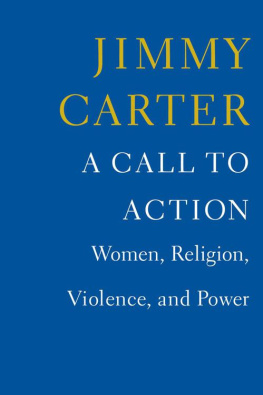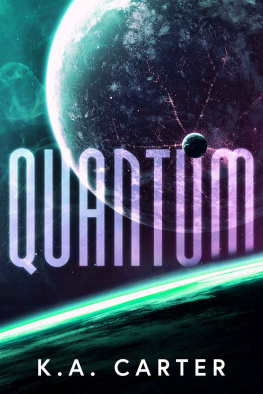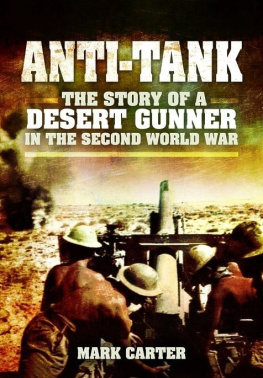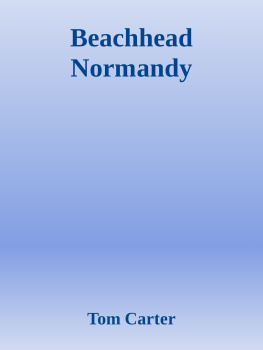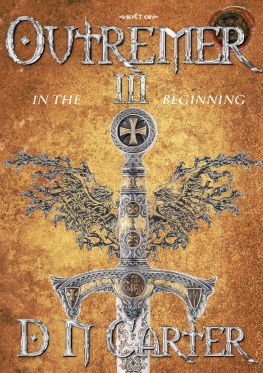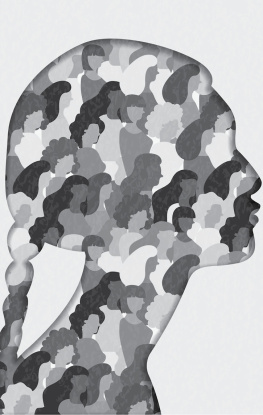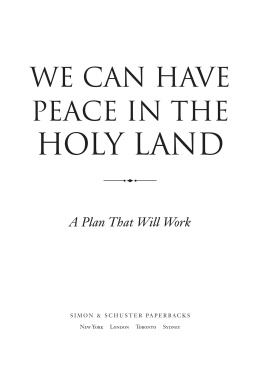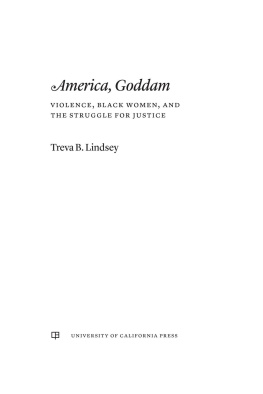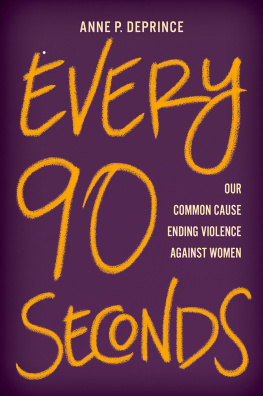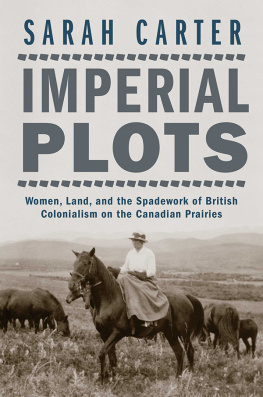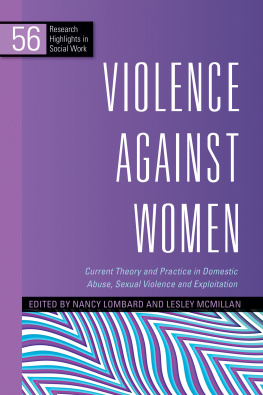Thank you for downloading this Simon & Schuster eBook.
Join our mailing list and get updates on new releases, deals, bonus content and other great books from Simon & Schuster. CLICK HERE TO SIGN UP or visit us online to sign up at
eBookNews.SimonandSchuster.com

CONTENTS

To Karin Ryan,and the countless women and girls whose abuse and deprivation she strives to alleviate
INTRODUCTION

All the elements in this book concerning prejudice, discrimination, war, violence, distorted interpretations of religious texts, physical and mental abuse, poverty, and disease fall disproportionately on women and girls.
I saw the ravages of racial prejudice as I grew up in the Deep South, when for a century the U.S. Supreme Court and all other political and social authorities accepted the premise that black people were, in some basic ways, inferior to white people. Even those in the dominant class who disagreed with this presumption remained relatively quiet and enjoyed the benefits of the prevailing system. Carefully selected Holy Scriptures were quoted to justify this discrimination in the name of God.
There is a similar system of discrimination, extending far beyond a small geographical region to the entire globe; it touches every nation, perpetuating and expanding the trafficking in human slaves, body mutilation, and even legitimized murder on a massive scale. This system is based on the presumption that men and boys are superior to women and girls, and it is supported by some male religious leaders who distort the Holy Bible, the Koran, and other sacred texts to perpetuate their claim that females are, in some basic ways, inferior to them, unqualified to serve God on equal terms. Many men disagree but remain quiet in order to enjoy the benefits of their dominant status. This false premise provides a justification for sexual discrimination in almost every realm of secular and religious life. Some men even cite this premise to justify physical punishment of women and girls.
Another factor contributing to the abuse of women and girls is an acceptance of violence, from unwarranted armed combat to excessive and biased punishment for those who violate the law. In too many cases, we use violence as a first rather than a last resort, so that even deadly violence has become commonplace.
My own experiences and the testimony of courageous women from all regions and all major religions have made it clear to me that as a result of these two factors there is a pervasive denial of equal rights to women, more than half of all human beings, and this discrimination results in tangible harm to all of us, male and female.
My wife, Rosalynn, and I have visited about 145 countries, and the nonprofit organization we founded, The Carter Center, has had active projects in more than half of them. We have had opportunities in recent years to interact directly among the people, often in remote villages in the jungles and deserts. We have learned a lot about their personal affairs, particularly that financial inequality has been growing more rapidly with each passing decade. This is true both between rich and poor countries and among citizens within them. In fact, the disparity in net worth and income in the United States has greatly increased since my time in the White House. By 2007 the income of the middle 60 percent of Americans had increased at a rate twice as high as that of the bottom 20 percent. And the rate of increase for the top 1 percent was over fifteen times higher, primarily because of the undue influence of wealthy people who invest in elections and later buy greater benefits for themselves in Washington and in state capitals. As the conservative columnist George Will writes, Big government inevitably drives an upward distribution of wealth to those whose wealth, confidence and sophistication enable them to manipulate government.
Yet although economic disparity is a great and growing problem, I have become convinced that the most serious and unaddressed worldwide challenge is the deprivation and abuse of women and girls , largely caused by a false interpretation of carefully selected religious texts and a growing tolerance of violence and warfare, unfortunately following the example set during my lifetime by the United States. In addition to the unconscionable human suffering, almost embarrassing to acknowledge, there is a devastating effect on economic prosperity caused by the loss of contributions of at least half the human beings on earth. This is not just a womens issue. It is not confined to the poorest countries. It affects us all.
After focusing for a few years on the problem of gender discrimination through our human rights program at The Carter Center, I began to speak out more forcefully about it. Because of this, I was asked to address the Parliament of the Worlds Religions, an audience of several thousand assembled in Australia in December 2009, about the vital role of religion in providing a foundation for countering the global scourge of gender abuse. My remarks represented the personal views of a Christian layman, a Bible teacher for more than seventy years, a former political leader.
I reminded the audience that in dealing with each other, we are guided by international agreements as well as our own moral values, most often derived from the Universal Declaration of Human Rights, the Bible, the Koran, and other cherished texts that proclaim a commitment to justice and mercy, equality of treatment between men and women, and a duty to alleviate suffering. However, some selected scriptures are interpreted, almost exclusively by powerful male leaders within the Christian, Jewish, Muslim, Hindu, Buddhist, and other faiths, to proclaim the lower status of women and girls. This claim that women are inferior before God spreads to the secular world to justify gross and sustained acts of discrimination and violence against them. This includes unpunished rape and other sexual abuse, infanticide of newborn girls and abortion of female fetuses, a worldwide trafficking in women and girls, and so-called honor killings of innocent women who are raped, as well as the less violent but harmful practices of lower pay and fewer promotions for women and greater political advantages for men. I mentioned some notable achievements of women despite these handicaps and described struggles within my own religious faith. I called on believers, whether Protestant, Catholic, Coptic, Jew, Muslim, Buddhist, Hindu, or tribal, to study these violations of our basic moral values and to take corrective action.

No matter what our faith may be, it is impossible to imagine a God who is unjust. ZAINAH ANWAR,
FOUNDER OF SISTERS IN ISLAM, MALAYSIA
I n the following pages I will outline how I learned more and more about these issues, as a child, a submarine officer, a farmer, and a church leader during the civil rights struggle, as a governor and a president, as a college professor, and in the global work of The Carter Center. During the nine decades of my life I have become increasingly aware of and concerned about the immense number of and largely ignored gender-based crimes. There are reasons for hope that some of these abuses can be ended when they become better known and understood. I hope that this book will help to expose these violations to a broader audience and marshal a more concerted effort to address this profound problem.
Next page
